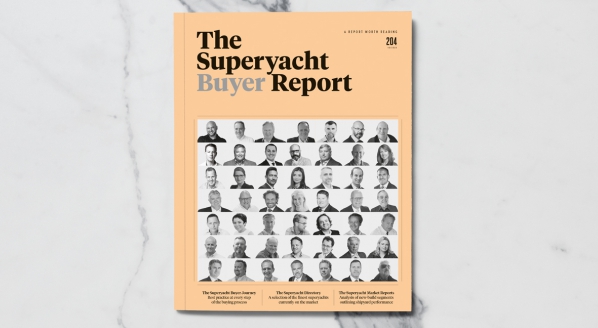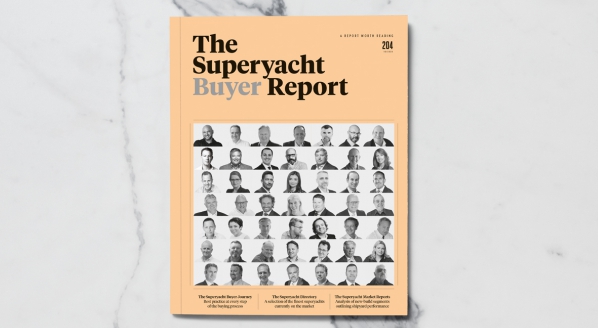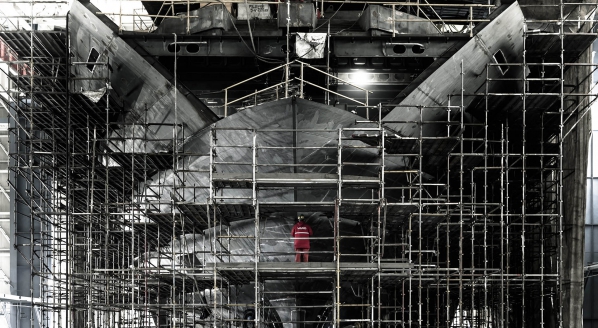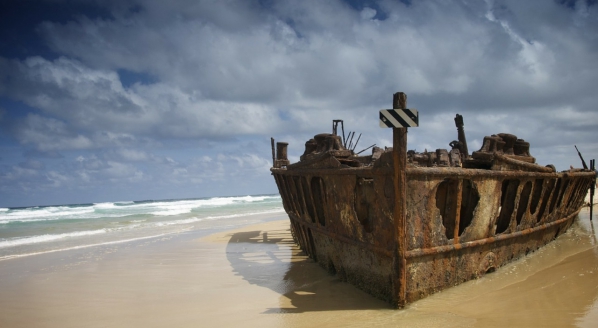The vital role of class
Buyer Journey contributor, Terry Allen on the importance of class…
Classification societies play a significant role in maintaining standards of construction, safety and operation of a vessel.
It would even be fair to say classification societies indirectly help with quality-control standards by ensuring systems operate effectively to maintain the safe operation of the vessel.
For while owners love the idea of having a superyacht, some sometimes cringe at the cost of running and maintaining it. Therefore, a mindful management team, master, engineer or project manager of a vessel can refer to class rules when the time comes for maintenance and repairs in shipyards.
The all-too-often cry from the owner’s office “Is it really necessary to remove the propeller shafts, they worked last year?” can be countered with a simple email from the classification society detailing the work required to pass inspections and so maintain the classification status.
It can also be argued whether we really need to maintain class. I’ve surveyed many vessels where the class status has lapsed and, in most cases, so has the standard and condition of the vessel. This, of course, is then reflected in the resale value. A vessel that is ten years old which should have market value of more than £20 million is then perhaps worth maybe only £10 million because of all the work required to bring the vessel back into class.
Also, if a vessel has classification status, it’s easier for the insurance company to make a risk assessment and valuation of a vessel. It’s also easier in the event of an insurance claim to justify values if the vessel is classed, depending on the claim as insurance companies love to stand behind the curtain when it’s time for a pay-out.
They’re always eager to accept the annual fee for a policy but will ultimately find any way possible to reduce and – in some cases – reject any liability for compensation to the owner if a vessel’s systems fail because they have not been maintained correctly.
‘Wear and tear’ is the standard response. So these are just a few reasons for having a vessel ‘classed’!
In November 2018, at The Superyacht Forum, I hosted a discussion on the topic ‘The Conflict of Interest of Classification Societies’, believing this would encourage classification societies to take this chance to air their views. Two thanked me for the offer but politely declined. Engel de Boer, of Lloyds Register, was the only one to accept and admirably held his ground during moments of ‘roasting’.
To conclude, it goes without saying that classification societies are a necessity for the reasons stated above. They clearly know their value to the maritime industry and should stand tall and be proud instead of sometimes compromising on standards and rules with shipbuilders for commercial purposes in the hope that they are then appointed by the yard for the next new build.
To read the 'Importance of Class' chapter of the Buyer Journey in full, please click here
NEW: Sign up for SuperyachtNewsweek!
Get the latest weekly news, in-depth reports, intelligence, and strategic insights, delivered directly from The Superyacht Group's editors and market analysts.
Stay at the forefront of the superyacht industry with SuperyachtNewsweek
Click here to become part of The Superyacht Group community, and join us in our mission to make this industry accessible to all, and prosperous for the long-term. We are offering access to the superyacht industry’s most comprehensive and longstanding archive of business-critical information, as well as a comprehensive, real-time superyacht fleet database, for just £10 per month, because we are One Industry with One Mission. Sign up here.
Related news

Considering a superyacht? Think about VAT
Equiom's David Prescott adds to our Buyer Journey with some additional tax advice
Owner

The Buyer Journey: How to work with brokers
Former Brokerage Editor, and now Y.CO sales broker, Felix Sowerbutts, felt compelled to comment on this topic
Owner

Shaping the future of class
The Superyacht Agency is undertaking a market perception survey on behalf of DNV GL
Business

Time to take advantage of remote surveys?
DNV GL discusses how superyachts can manage surveys during the COVID-19 pandemic
Technology

The drawback of low-sulphur fuel
The increasingly low sulphur content in fuels can cause the severe corrosion of fuel tanks on board
Crew

Industry prepares for EU Ship Recycling Regulation
Vessels over 500gt in EU waters will be required to carry a verified Inventory of Hazardous Materials on board
Business
Related news
Considering a superyacht? Think about VAT
5 years ago
The Buyer Journey: How to work with brokers
5 years ago
Shaping the future of class
5 years ago
Time to take advantage of remote surveys?
6 years ago
The drawback of low-sulphur fuel
6 years ago
The role of class
6 years ago
Class: what would you change?
7 years ago
NEW: Sign up for
SuperyachtNewsweek!
Get the latest weekly news, in-depth reports, intelligence, and strategic insights, delivered directly from The Superyacht Group's editors and market analysts.
Stay at the forefront of the superyacht industry with SuperyachtNewsweek




